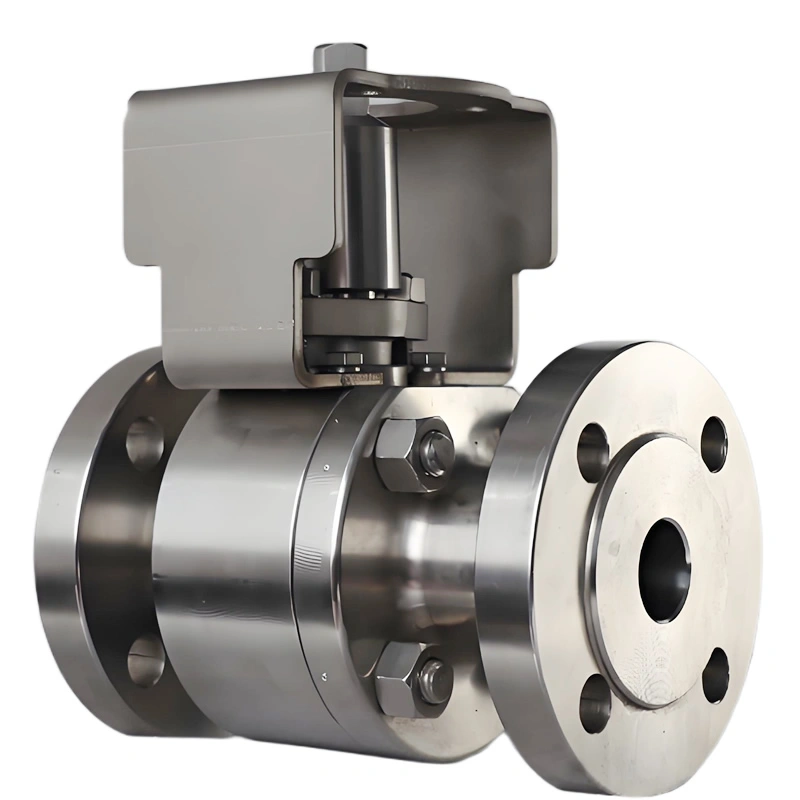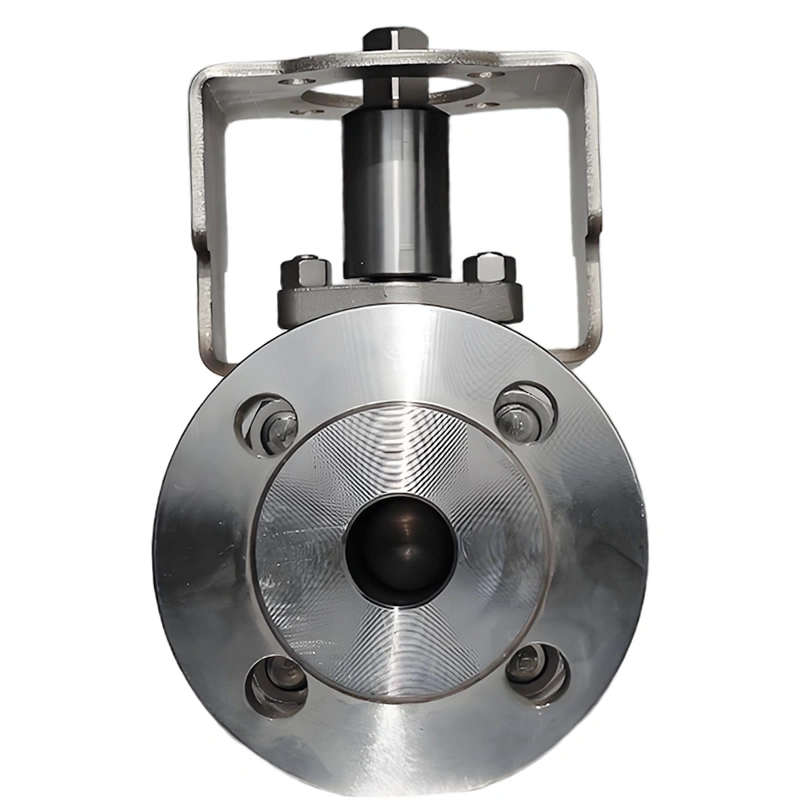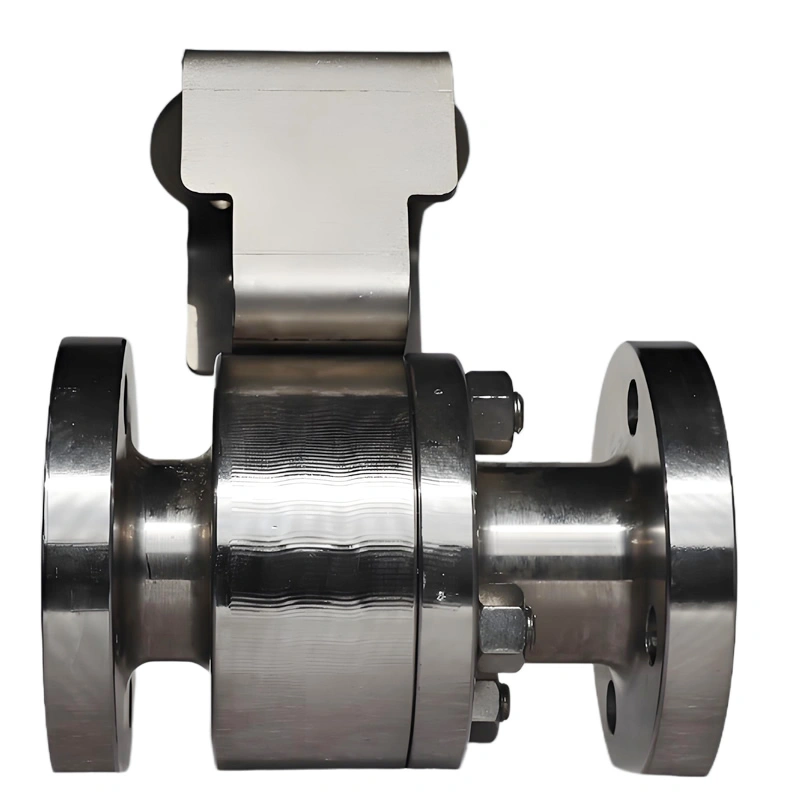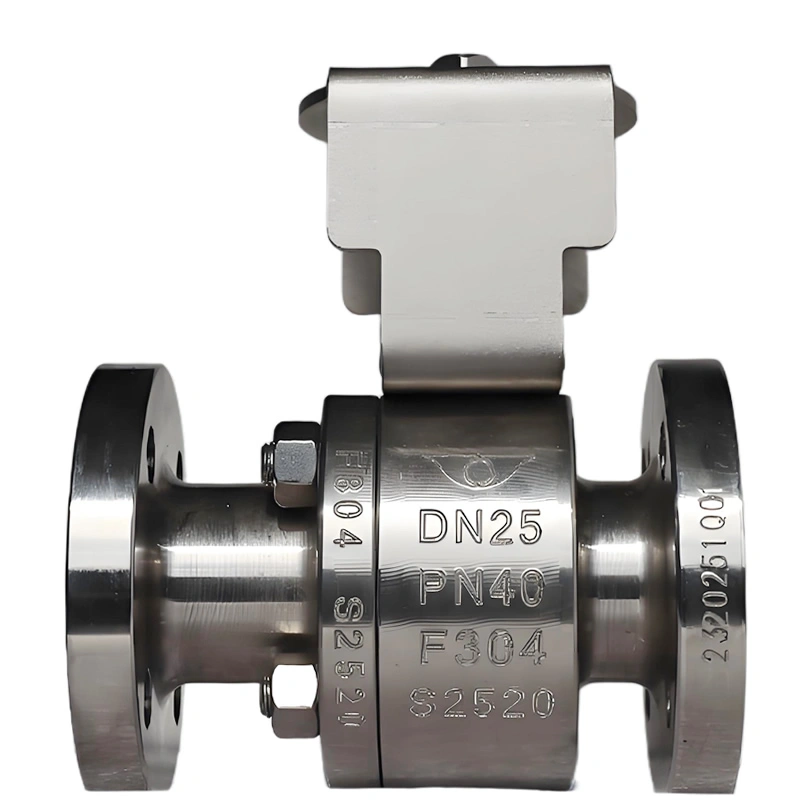- DN15 ~ DN200
- Class 1500 ~ 2500
- API 6D, ASME B16.34, ASME B16.5
- NACE MR0175 (Sour Service)
- Forged ASTM A182 F304 Stainless Steel
- RF / RTJ Flange (ASME B16.5)
- 3-Piece, Full Port, Floating Ball
- -196℃ ~ 232℃ (PTFE Seats)
- API 598 Class VI
- ANSI B16.5 / JIS B2202
Specification
API DN25 PN40 F304 Raised Face Flange Bare Stem Floating Ball Valve
I. Product Overview
Newway DN25 PN40 floating ball valve is a medium-pressure flow control solution engineered for industrial pipelines requiring reliable performance and corrosion resistance. Crafted from F304 stainless steel with a raised face flange connection and bare stem design, it balances structural strength with adaptability—supporting both manual and automated actuation. Operating at 4.0MPa (PN40) and -29℃~180℃, it handles clean media like water, oil, gas, and mild chemicals, complying with ASME B16.34 and API 598 standards. Ideal for industrial hydraulics, process lines, and utility systems, it delivers tight sealing, easy integration, and long service life in medium-pressure environments.
II. Key Attribute Specifications
|
Category |
Details |
|
Size |
DN25 (1”), matching standard pipeline dimensions for medium-flow applications. |
|
Pressure Rating |
PN40 (4.0MPa), suitable for medium-pressure systems like industrial compressed air or hydraulic lines. |
|
Material |
– Body/Ball/Stem: F304 stainless steel (18Cr-8Ni), offering general corrosion resistance for non-aggressive media.- Seat: PTFE (polytetrafluoroethylene) with glass fiber reinforcement, enhancing pressure resistance and reducing cold flow. |
|
Connection |
Raised face flange (ASME B16.5), ensuring compatibility with standard gaskets and easy alignment in pipeline systems. |
|
Actuation |
Bare stem design, adaptable to manual handles or automated actuators (pneumatic/electric via ISO 5211 mounting). |
|
Temperature Range |
-29℃~180℃ (PTFE seat limit), covering ambient to moderately high-temperature media. |
III. Feature Description
Floating Ball Mechanism: The ball floats freely within the valve body, relying on media pressure to press against PTFE seats, creating a self-tightening seal. This design compensates for minor pressure fluctuations, ensuring consistent sealing in systems like hydraulic circuits or oil transfer lines. Unlike trunnion valves, it eliminates complex support structures, reducing weight while maintaining reliability at PN40.
F304 Stainless Steel Durability: F304’s chromium-nickel alloy resists rust and oxidation in clean media. In industrial water treatment systems or compressed air lines, it withstands moisture and mild contaminants, outperforming carbon steel in humid or outdoor environments. The material’s tensile strength (≥515MPa) ensures structural integrity under 4.0MPa pressure.
Reinforced PTFE Seats: Glass fiber-reinforced PTFE seats enhance pressure resistance, preventing deformation under PN40 conditions. Their low friction (coefficient ≤0.04) ensures smooth stem operation, even after thousands of cycles. Chemical inertness makes them compatible with water, mineral oils, and inert gases, avoiding media contamination.
Bare Stem Versatility: The bare stem allows flexible actuation—easily fitted with a manual handle for simple on-off control or paired with electric/pneumatic actuators for automated systems. This adaptability suits both small-scale workshops and large industrial plants requiring remote operation.
Raised Face Flange Sealing: The flange’s raised face increases gasket contact area, improving sealing under pressure. When paired with spiral-wound gaskets, it prevents leakage in high-vibration environments like pump discharge lines, ensuring pipeline safety.
Product Overview
IV. Manufacturing Processes
Precision Forging: F304 stainless steel billets undergo hot forging to form valve bodies and balls, eliminating internal defects (porosity) and enhancing material density. Forged components withstand higher pressure fatigue compared to cast alternatives, critical for PN40 applications.
CNC Machining: Body, ball, and flange faces are CNC-machined to tight tolerances (±0.05mm). The ball’s sealing surface is ground to Ra ≤0.8μm, ensuring uniform contact with PTFE seats. Stem threads are precision-cut for smooth actuator compatibility.
Seat Assembly: Reinforced PTFE seats are compression-molded to match the valve’s internal contours, then press-fitted into seat pockets with high-temperature adhesive. This ensures secure retention under pressure, preventing displacement during operation.
Testing: Each valve undergoes rigorous validation:
Hydrostatic Shell Test: 1.5×PN40 (6.0MPa) for 30 minutes to verify body integrity.
Seat Leak Test: 1.1×PN40 (4.4MPa) with water, ensuring leakage ≤0.1×DN mm³/min (per API 598 Class IV).




